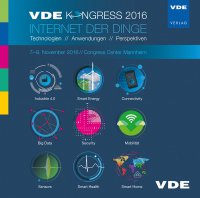Personal Effort, Controllability and Privacy Concerns: Investigating Main V2G Barriers to Participation with Experienced Users
Conference: VDE-Kongress 2016 - Internet der Dinge
11/07/2016 - 11/08/2016 at Mannheim, Deutschland
Proceedings: VDE-Kongress 2016
Pages: 6Language: englishTyp: PDF
Personal VDE Members are entitled to a 10% discount on this title
Authors:
Döbelt, Susen; Zerbe, Alexander; Kreußlein, Maria; Heller, Cynthia; Mair, Claudia; Schmalfuß, Franziska; Wüstemann, Ramona (Technische Universität Chemnitz, Institute of Psychology, Cognitive and Engineering Psychology, Wilhelm-Raabe-Str. 43, 09120 Chemnitz, Germany)
Abstract:
Integrating renewables into a smarter grid actually implies to increase flexibility in energy demand and supply. One solution to contribute to grid balancing could be the integration of battery electric vehicles (BEVs) by using their potential as “mobile batteries”. Besides the technical feasibility of smart charging concepts, a further challenge is to address barriers to user participation. The incorporation of user requirements at an early stage of system design provides valuable information for a usable design and therefore contributes to a successful implementation of such solutions. The increase of personal effort in smart compared to conventional charging use cases (e.g., due to the additional request of entering detailed personal charging settings), concerns about the loss of personal freedom (e.g., due to reduced state of charge) and privacy (e.g., due to the collection of charging and mobility data) are known to present main user barriers to participate. We conducted six focus groups with N = 58 experienced EV drivers to shed light on these barriers for V2G user participation: personal effort, controllability and privacy concerns. Quantitative results concerning four scenarios reflecting different levels of personal effort showed that the willingness to participate in V2G and the perceived possibilities to integrate V2G into everyday life significantly decrease with increasing effort. With regard to enhance the sense of controllability by providing an option to determine the location of energy release, the majority of focus group participants did not have any certain preference, when asked for their preferred destination for feeding energy back. The analysis of the qualitative statements showed that other system characteristics such as the compensation or the existing infrastructure were perceived more important by the participants. During an open discussion on disadvantages of a V2G-System, 12% of all statements addressed “data protection and data security” issues, confirming concerns with regard to the protection of privacy. However, disadvantages like “public and personal costs”, “personal effort” and “complexity of technical infrastructure” were mentioned more often. Implications for V2G system design with regard to personal effort, controllability, and privacy are deduced.


